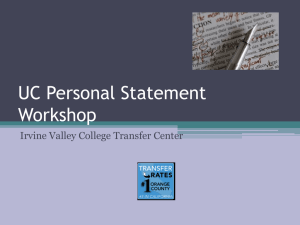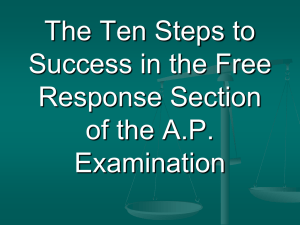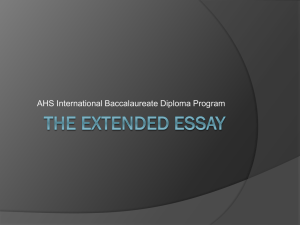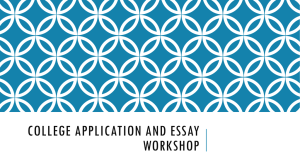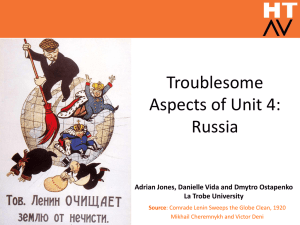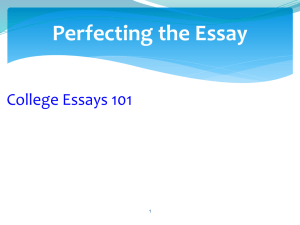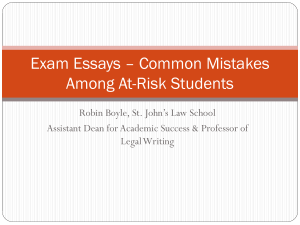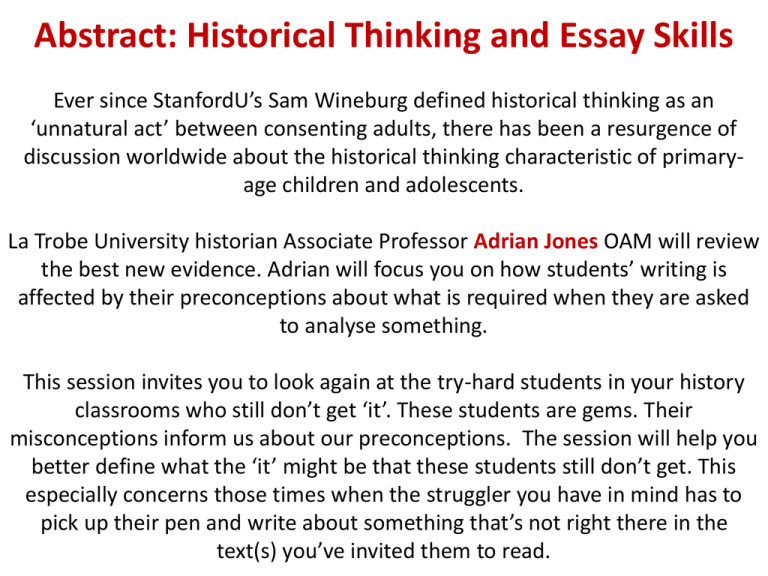
Abstract: Historical Thinking and Essay Skills
Ever since StanfordU’s Sam Wineburg defined historical thinking as an
‘unnatural act’ between consenting adults, there has been a resurgence of
discussion worldwide about the historical thinking characteristic of primaryage children and adolescents.
La Trobe University historian Associate Professor Adrian Jones OAM will review
the best new evidence. Adrian will focus you on how students’ writing is
affected by their preconceptions about what is required when they are asked
to analyse something.
This session invites you to look again at the try-hard students in your history
classrooms who still don’t get ‘it’. These students are gems. Their
misconceptions inform us about our preconceptions. The session will help you
better define what the ‘it’ might be that these students still don’t get. This
especially concerns those times when the struggler you have in mind has to
pick up their pen and write about something that’s not right there in the
text(s) you’ve invited them to read.
Cracking the Code (Analysis & Essays in History)
Decoding the Discipline (History)
The sustained feats of analysis required in the history essay can
seem to students arcane, unnatural and a teacher’s whim:
1.
Learning practices are too often implicit. Glib
comprehension may seem to have been just fine in school
before, so why do those damn teachers and academics
want analysis now?
2.
Attending more to learning outputs than inputs.
Teachers and academics worry more about grading essays
than they worry about how students learn to analyse
things in history.
3.
Agendas for learning give mixed messages. The essay as
key training venue for arriving at deeper learning is
distorted because it often doubles as an external and/or
summative assessment tool. Students have to learn how
to think just when they are learning how to write.
Which of these are really examined in essays?
Reference (1): “Decoding the Disciplines”
as practised by Indiana U historians:
Arlene Díaz, Joan Middendorf, David Pace & Leah Shopkow, “The History
Learning Project: A Department ‘Decodes’ its Students”, The Journal of
American History, 94(4) 2008, 1211-24; David Pace, “Decoding the
Reading of History: An Example of the Process” in Decoding the
Disciplines: Helping Students Learn Disciplinary Ways of Thinking in New
Directions for Teaching and Learning, 98 (summer 2004), ch. 2.
http://www.ntlf.com/issues/v16n2/v16n2.pdf
Reference (2): “Decoding the
Disciplines” as practised by Australian
based academic historians:
http://bit.ly/1maZNXd
a site under development I’ve been
working on with Prof. Jennifer Clark at
UNE, and with other Humanities
people in six other Australian
universities.
Form groups of four by pairing and turning
back. Swap stories for four minutes; one
minute each. Think about a try-hard
student in your class who still gets essay
researching and writing all “wrong”.
Define one error. Be specific. Text me.
Free text message to +61427541357,
and then on the message line enter
648603 first so the system knows to
which poll to send your response.
THINKING ABOUT YOUR STUDENTS, WHAT DO YOU THINK ARE THEIR
KEY BOTTLENECKS TO THEIR LEARNING OF HISTORY?
The quest: Release our students’ hidden History smarts!
In the same groups over the next four minutes, think
again about those try-hard students in your classes
who get essay researching and writing all “wrong”.
Decode together the nature or the source of the
student misconception prompting one such error.
Text me that. Be specific.
Another free text message to the same
number +61427541357, but on the
message line now enter 648633 first so
the system knows to which poll to send
your response.
PS: We have been in-servicing by practising
“decoding the disciplines”. The next step (we won’t
take here) is to ask what you can do as a teacher to
move the students through and past each particular
common misconception. Most often it requires being
much more explicit about everything we do.
Teachers and academics don’t do enough “read
alouds” for instance. “Decoding” was designed for
academics. They suffer more from hubris, but they
are dumber about student learning than teachers.
BOTTLENECKS IDENTIFIED BY HISTORIANS AT INDIANA U
1. MISUNDERSTANDING THE ROLE OF FACTS
INTERPRETATION ≠ ACCUMULATION
2. INTERPRETING PRIMARY SOURCES
SOURCES COME FROM CONTEXTS AND FROM ACCIDENTS OF DELIVERY
3. MAINTAINING EMOTIONAL DISTANCE
BEING RESPECTFUL OF A PAST, YET STILL SCEPTICAL & CRITICAL
4. & 5. UNDERSTANDING THE LIMITS OF HISTORICAL ACTORS & IDENTIFYING WITH
PEOPLE IN ANOTHER TIME AND PLACE
MY KNOWLEDGE ≠ THEIR KNOWLEDGE – STUDENTS’ READINESS TO
RELATIVISE
THOUGHTS AND EXPERIENCES OF THE HISTORICAL SUBJECTS THEY
STUDY
AND INDEED THEMSELVES
6. CONSTRUCTING AND EVALUATING ARGUMENTS
REALISING LINES OF ARGUMENT AREN’T FOUND, THEY ARE CONSTRUCTED
BY AN HISTORIAN OUT OF EVIDENCE, YET ALSO NOT SURRENDERING TO THE
RELATIVISMS INTEGRAL TO THAT REALISATION
7. LINKING SPECIFIC DETAILS TO A BROADER CONTEXT
DIFFICULTIES STUDENTS HAVE WITH LINKING SPECIFIC STUFF THEY KNOW
ABOUT A PAST TO WIDER “ISSUES” OR LINES OF ARGUMENT ABOUT PASTS
Theodore de Bry
(1528-98) satirical
woodcut (1569) of a
schoolroom from his
emblem book:
“Emblemata
nobilitate et vulgo
scitu digna
(Emblems suitable
for the nobility and
the common people
to know)”
You succeed
in nothing
and you
learn nothing
against your
inclination
Frankfurt-am-Main 1569
or 1590s.
The Newberry Library,
Chicago, or Wake Forest
University, Winston-Salem,
USA, item PC1935.7:
http://www.newberry.org/ &
http://www.wfu.edu/academi
cs/art/pc/images/pc-bryinvita.jpg
Dai Hounsell on student conceptions about essays
“Learning and Essay Writing” in The Experience of Learning, eds Ferenc Marton et al., Edinburgh, Scottish Academic Press, ch. 7
;“Toward and Anatomy of Academic Discourse: Meaning and Context in the Undergraduate Essay” in The Written World, ed. Roger
Säljö, Berlin, Springer, 1988, ch. 10; “Reappraising and Recasting the History Essay” in The Practice of University History Teaching, eds
Alan Booth et al., Manchester, Manchester University Press, 200, ch. 14.
• Essays just seek an arrangement of stuff I know
– Facts speak for themselves. Knowledge is a bucket. People
with the most facts win in life. You just re-arrange the stuff.
• Essays just offer an occasion to give my point of view
– Tweak the facts so they speak my way. Essays just want to
know what I think. When teachers ask me for evidence that
just means they want me to describe better what I think.
• Essays task me to develop a line of argument
– I have to order facts and make them speak something (else).
I know different people can write differently about the same
things and still be “right”. There just has to be evidence and
an evident and balanced pattern to everything I mention.
How might a teacher develop
students' confidence and capacities to
write evidence-based essays? Offer
something short and specific.
Confer for another four minutes in the same
group, and then send me another free text
message to the same number +61427541357,
but on the message line now enter 650433 first
so the system knows to which poll to send your
response.
Chauncey Monte-Sano (U Michigan) on what makes a
difference in learning evidence-based historical writing
“Qualities of Historical Writing Instruction: A Comparative Case Study of Two Teachers’ Practices”, American
Educational Research Journal, 45(4) 2008, pp. 1045-79.
• “approaching history as evidence-based interpretation”
• “reading historical texts and considering them as
interpretations”
• “supporting reading comprehension and historical
thinking”
• “asking students to develop interpretations and
support them with evidence”
• “using direct instruction, guided practice, independent
practice, and feedback”
• “The act of writing alone is not sufficient for growth in
evidence-based historical writing.”
Reference (3): New US work on
adolescents’ historical thinking. There is
fine Dutch, Spanish and British work too!:
Sam Wineburg’s students: Susan de la Paz et al. “Adolescents’ Disciplinary Use of Evidence,
Argumentative Strategies and Organizational Structure in Writing about Historical
Controversies”, Written Communication, 29(4) 2012: 412-54; Monte-Sano & de la Paz, “Using
Writing Tasks to Elicit Adolescents’ Historical Reasoning”, Journal of Literacy Research, 44(3)
2012: 273-99.
Stuart Greene, “The Problems of Learning to Think like an Historian”, Educational Psychologist,
29(2) 1994: 89-96 and “Students as Authors in the Writing of History” in Teaching and Learning
in History, eds Gaea Leinhardt et al., New York, NY: Routledge, 2009.
Kathleen McCarthy Young and Gaea Leinhardt, “Writing from Primary Documents: A Way of
Knowing in History”, Written Communication, 15(1) 1998: 25-68.
Lorraine Huggins, “Reading to Argue: Helping Students Transform Source Texts” in Hearing
Ourselves Think, eds Ann Penrose & Barbara Sitko, New York, NY: Oxford University Press, 1993,
ch. 5.
Other researched perspectives
on historical thinking
Peter Lee & Rosalyn Ashby (Institute of Education, University of London)
‘Progression in Historical Understanding among Students ages 7 to 14’ in Knowing, Teaching and Learning
History: National and International Perspectives, eds Peter Stearns, Peter Seixas & Sam Wineburg, New York:
New York University Press & The American Historical Association, 2000, ch. 11.
1. Nonsense. ‘The Blind Monkey.’ We can’t know about history. We
weren’t there – unless they’re dinosaurs. Does icky-picky history
stuff matter? Wonder is better anyway. (Junior Primary?)
2. Evidence. ‘Left-Overs’. Literalism. Only with what’s here and now,
can we possibly know about history. (Senior Primary?)
3. Bias. ‘Bulldust!’ Someone else with an axe to grind selected what
we know about history. It’s all baloney anyway. (Mid-Secondary?)
4. Orientation. Me! Me! Me!. That might be interesting, but it really
all depends on the individual. Arguments and evidence are just
points of view: mine and theirs. My views are better. (Senior
Secondary?)
5. Relativity. ‘Me Tarzan, You Jane’. The stuff I know oddly depends
on me. Questions we ask prompt evidence we find which shape
what we know about history. I therefore need to be open to new
Denis Shemilt (University of Leeds)
‘Adolescent Ideas about Evidence and Methodology in History’ in The History Curriculum for Teachers, ed.
Christopher Portal, London, Falmer, 1987, ch. 3, a study of 167 15-year-olds in 24 English schools who had to
keep on explaining why and how we know stuff about History.
1
2
3
4
The
Past
is
a
given.
Sources
mean
one
thing.
What
the
teacher
told
us is
true.
Historians
are
expert
memory
people
who
know
everything
about
the
past.
What
could
I possibly
know?
Ionly
go
with
the
flow.
The
Past
is
“out
there”
to
be
found.
Sources
still
only
mean
one
thing,
but
different
people
privilege
different
information.
That’s
why
there’s
bias.
Historians
sort
the
wheat
from
the
chaff.
We
just
look
for
the
bias
we
prefer.
The
has
to
be
nutted
out
by
The
information
inandin
sources
isactually
indeed
“out
there”,
only
when
itcan’t
been
critiqued
evidence.
Historians
draw
inferences
from
evidence.
Historians
will
differ
what
and
how.
This
uncertainty
annoys.
Why
they
work
itfor
out?
The Past
Past
is
aanswers.
Historian’s
Reconstruction
using
ahas
Method.
We
can’t
know
about
the
past
for
sure,
but
webut
can
infer
itssomeone.
characteristics
using
different
methods
to
interrogate
sources.
It’s
fun
to
compare
sources,
methods
results,
even
if there’s
no
single
right
answer,
only
lots
ofjust
wrong
or
incomplete
Jörn Rüsen (Zentrum für interdisziplinäre Forschung, Bielefeld and
Kulturwissenschaftliches Institut, Essen)
Rüsen, ‘Historical Consciousness’ (1989, 1997) in Peter Seixas, ed., Theorizing Historical Consciousness, Toronto,
The University of Toronto Press, 2006, pp. 63-85 @ 70-79.
1 Traditional-Biblical. Ways lives are/were lived
are/were pre-ordained and obligatory.
2 Traditional-Exemplary. Timeless rules and values
shape past and present lives.
3 Critical. Pasts are a problem for me: my times now
relativise theirs in their past. The past is either
perpetually in deficit or looking rather nostalgic.
4 Genetic. O.M.G. Everything’s in flux: my own familiar
now actually depends on my particular time and
context, and so were they back in their then, and so
is time itself. Is there any meaning in anything?


